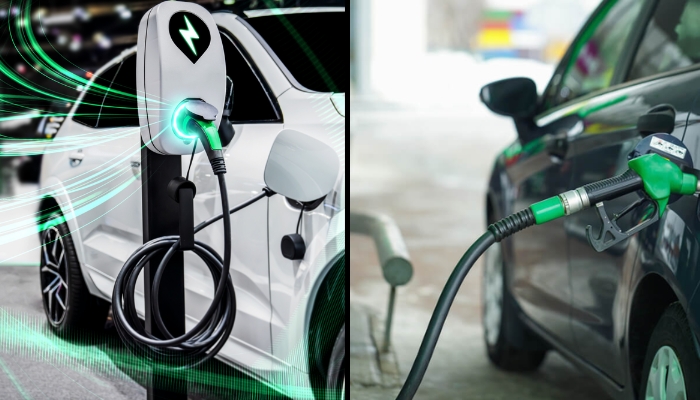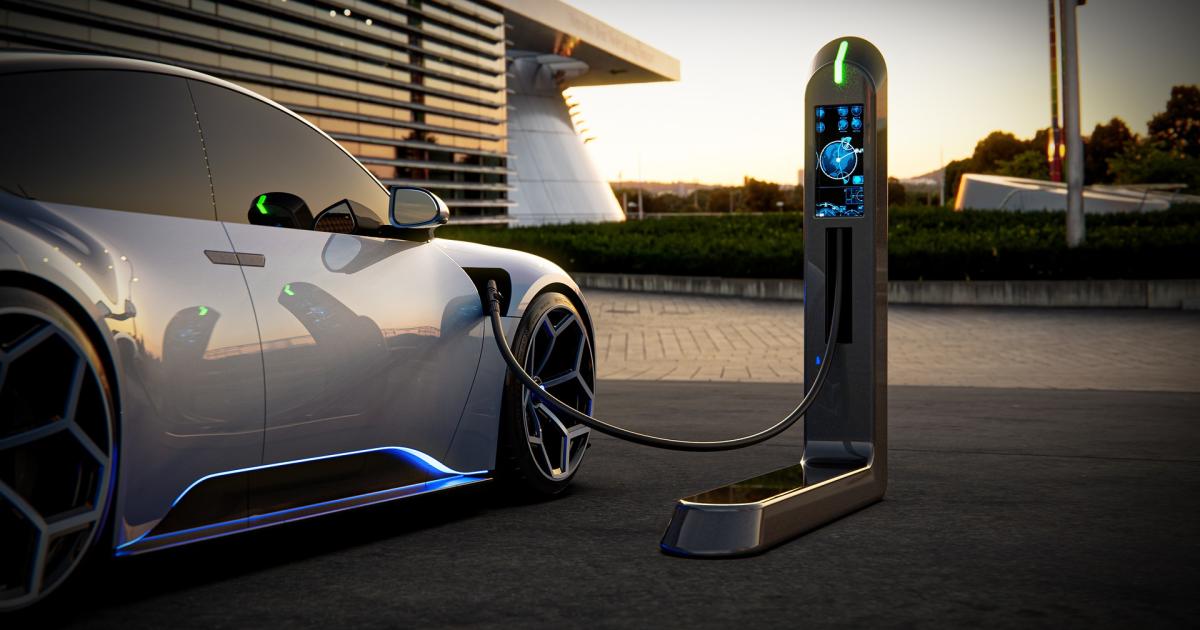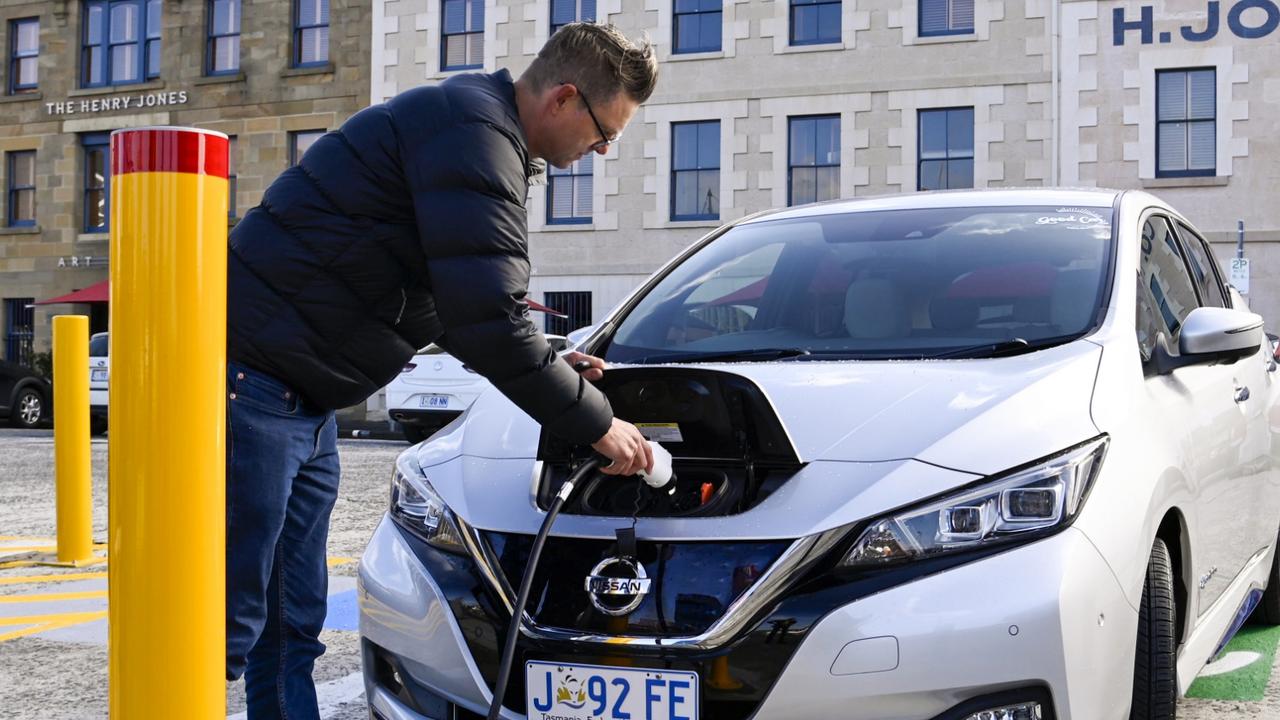Electric vs. Gas Cars: A Simple Guide to Help You Choose

A side-by-side comparison of an electric car and a gas-powered vehicle, highlighting key differences in design and efficiency.
In 2025, the auto industry is rapidly evolving, and one of the biggest questions on many consumers’ minds is: Should I buy an electric vehicle (EV) or stick with a traditional gas-powered car? With sustainability, performance, and long-term savings at the forefront of discussions, choosing the right vehicle has never been more critical.
This detailed overview examines the benefits and drawbacks of electric versus. gas vehicles, key considerations before making a purchase, and how to decide which option is right for your lifestyle. Whether you're commuting in the city, planning long road trips, or just looking for an upgrade, this article will help you make an informed decision.
Before diving into specifics, it’s essential to understand what sets these two vehicle types apart:
Electric Vehicles (EVs) run entirely on electricity.They employ rechargeable batteries and electric motors.
Gasoline Vehicles use internal combustion engines powered by petrol or diesel.
Both options offer unique benefits, but your decision should reflect your driving habits, location, and long-term goals.
 Electric cars have surged in popularity over the past few years—and for good reason. Let's take a deeper look at their main advantages.
Electric cars have surged in popularity over the past few years—and for good reason. Let's take a deeper look at their main advantages.
EVs are significantly cheaper to run. Electricity costs less than gasoline, and EVs require minimal maintenance (no oil changes, spark plugs, or exhaust repairs).
Driving electric produces zero tailpipe emissions, helping combat climate change and air pollution.
The electric motor delivers a silent and smooth driving experience, ideal for urban commuting.
Many governments offer tax credits, rebates, and reduced registration fees for EV buyers.
Most EVs come with cutting-edge technology like regenerative braking, smart navigation systems, and remote diagnostics.
For example, if you're an urban rider looking for eco-friendly commuting options, you might also enjoy reading our review on Why Aventon Bikes Are the Best E-Bikes for Urban Riders in 2025.
 Despite the EV hype, gas-powered vehicles remain a practical choice for many drivers. Here’s why:
Despite the EV hype, gas-powered vehicles remain a practical choice for many drivers. Here’s why:
On average, gas vehicles can travel longer distances on a full tank compared to many EVs, especially budget-friendly models.
There’s no denying that gas stations are everywhere, making refueling quick and easy—especially in rural areas.
Gas cars generally have a lower purchase price, making them more accessible for budget-conscious buyers.
While they require more frequent servicing, traditional mechanics are well-versed in gas vehicle repair and maintenance.
While EVs have a higher upfront price, their lower running and maintenance costs can make them cheaper in the long run.
|
Expense Category |
Electric Vehicle (EV) |
Gas Vehicle |
|---|---|---|
|
Purchase Price |
Higher |
Lower |
|
Fuel/Energy Cost |
Lower |
Higher |
|
Maintenance |
Lower |
Higher |
|
Resale Value |
Increasing |
Stable |
A good strategy is to calculate the 5-year cost of ownership to see which option truly fits your budget.
Verdict: If you live in an apartment or travel frequently across long distances, a gas vehicle may still be more convenient.
If sustainability is a core value, EVs clearly win in this category.

However, sports and luxury gas vehicles still dominate the high-performance market—though this gap is closing quickly.
In recent years, electric cars have begun holding their value better, especially popular models like Tesla, Rivian, and Hyundai Ioniq.
Plus, you may be eligible for:
Gas cars have fewer financial perks but still offer predictable depreciation trends.

EVs are especially suitable for urban dwellers who value sustainability and cost savings over long road trips.
We also cover more lifestyle-focused vehicle reviews at MBBreviews—check it out for real-world insights and product comparisons!
 A gas-powered vehicle might still be the better choice if:
A gas-powered vehicle might still be the better choice if:
For drivers in rural or remote regions, gas cars offer the freedom and flexibility still unmatched by most EVs.
Ultimately, the choice between an electric and gas vehicle comes down to your driving habits, budget, and values.
|
Criteria |
Best Choice |
|---|---|
|
Daily city commuting |
Electric Vehicle |
|
Long-distance travel |
Gas Vehicle |
|
Low maintenance costs |
Electric Vehicle |
|
Lower initial investment |
Gas Vehicle |
|
Environmental consciousness |
Electric Vehicle |
As EV technology continues to improve and charging infrastructure expands, electric vehicles are becoming more practical for a wide range of drivers. However, gas vehicles still offer reliability and range that can’t be ignored—at least for now.
The automotive world is shifting fast, and your decision today could impact your finances, convenience, and carbon footprint for years to come. Whichever route you choose, be sure to consider your long-term needs—and stay updated with the latest industry trends by following our blog.
?Also, don’t forget to explore our post on Why Aventon Bikes Are the Best E-Bikes for Urban Riders in 2025—especially if you’re looking for an affordable, eco-friendly way to commute in the city.
Comments